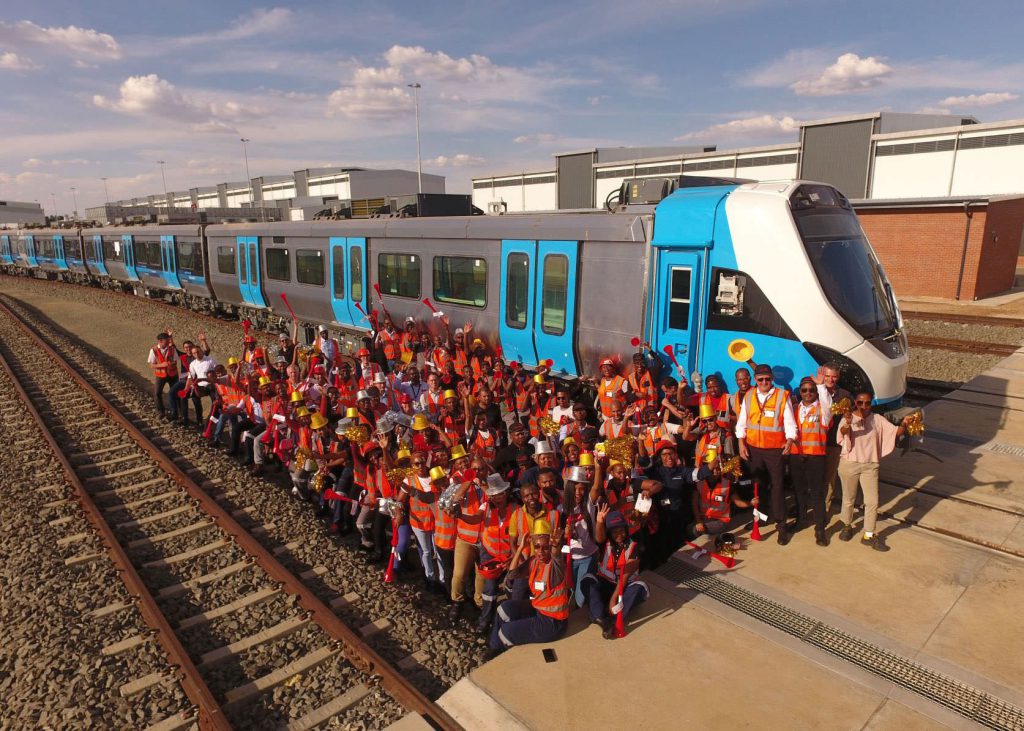Sunday Times Skills
The Railway Revolution
Over the past decade, South Africa’s metro rail industry has been plagued by problems. The Passenger Rail Agency of South Africa’s (PRASA) trains are regularly out of service, leaving millions of passengers stranded. In 2013, PRASA appointed Gibela — a consortium between Alstom, Umbumbano Rail and New Africa Rail — to lead the replacement of its ageing metro fleet with 600 modern commuter passenger trains.
New trains take to the tracks
The first 18 of the 600 new modern trains were manufactured at Alstom’s Lapa Factory in Brazil, and are currently being tested in Pretoria.
More excitingly, Gibela’s new, world-class train manufacturing facility at Dunnottar in Ekurhuleni has started local production of state-of-the-art trains. The manufacturing facility has the capacity to produce 62 six-car trains a year at peak production, one of the fastest production rates in the world. The first three locally-built X-Trapolis MEGA trains were delivered to Prasa between December 2018 and March 2019.
“The X-Trapolis MEGA train has been designed with safety in mind — it is compliant with all the latest international safety requirements — and will provide a regular, reliable and on-time service for South Africa’s 2.3 million rail commuters. This number is expected to double within the next 20 years as rail becomes the transport of choice for large sections of the population,” explains Gibela CEO Hector Danisa.
Job creation and skills development
Throughout the project, Gibela has placed local skills development and job creation at the top of its priority list. The fully black-empowered company currently employs 800 people, 94 per cent of whom are black South Africans and 46 per cent women.
“Through the rolling stock project, Gibela will generate 1 500 direct jobs and thousands of indirect jobs through the supply chain over a 10-year period. Thousands of people comprising engineers, artisans, technicians, train drivers and technologists will benefit from training and upskilling,” says Danisa.
Many of the company’s employees receive specialised training overseas, while others benefit from local training and skills transfer programmes led by industry experts.
Gibela’s Make a Difference campaign further illustrates the consortium’s commitment to skills development. It includes a wide variety of programmes, ranging from a bursary programme to community development, small business incubation and educational programmes.
“Gibela has publicly committed to making a difference to the communities surrounding our Dunnottar factory in Ekurhuleni,” says Gibela’s economic development director, Dr Buyiswa Mncono-Liwani. “This commitment is part of our Make a Difference campaign, which brings together projects that are primarily focused on education and skills development. In everything we do, we strive to make a difference in South Africa every day.”
It is anticipated that the landmark Gibela project will be fully completed by 2035. The revitalisation of the country’s railway industry will not only benefit commuters, but will also contribute to building a better South Africa.






 Sign-up and receive the Business Media MAGS newsletter OR SA Mining newsletter straight to your inbox.
Sign-up and receive the Business Media MAGS newsletter OR SA Mining newsletter straight to your inbox.